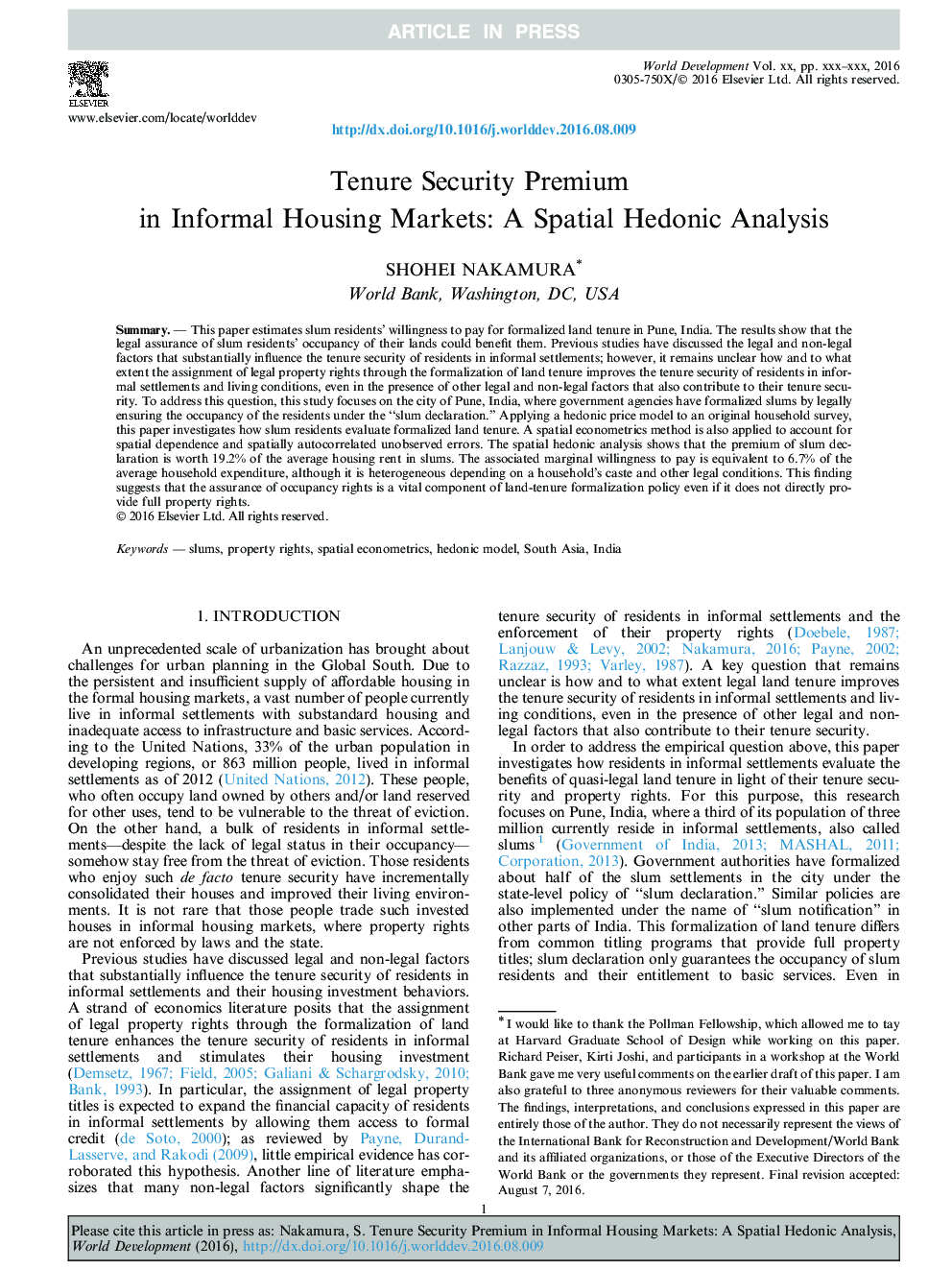| Article ID | Journal | Published Year | Pages | File Type |
|---|---|---|---|---|
| 5105351 | World Development | 2017 | 15 Pages |
Abstract
This paper estimates slum residents' willingness to pay for formalized land tenure in Pune, India. The results show that the legal assurance of slum residents' occupancy of their lands could benefit them. Previous studies have discussed the legal and non-legal factors that substantially influence the tenure security of residents in informal settlements; however, it remains unclear how and to what extent the assignment of legal property rights through the formalization of land tenure improves the tenure security of residents in informal settlements and living conditions, even in the presence of other legal and non-legal factors that also contribute to their tenure security. To address this question, this study focuses on the city of Pune, India, where government agencies have formalized slums by legally ensuring the occupancy of the residents under the “slum declaration.” Applying a hedonic price model to an original household survey, this paper investigates how slum residents evaluate formalized land tenure. A spatial econometrics method is also applied to account for spatial dependence and spatially autocorrelated unobserved errors. The spatial hedonic analysis shows that the premium of slum declaration is worth 19.2% of the average housing rent in slums. The associated marginal willingness to pay is equivalent to 6.7% of the average household expenditure, although it is heterogeneous depending on a household's caste and other legal conditions. This finding suggests that the assurance of occupancy rights is a vital component of land-tenure formalization policy even if it does not directly provide full property rights.
Related Topics
Social Sciences and Humanities
Economics, Econometrics and Finance
Economics and Econometrics
Authors
Shohei Nakamura,
